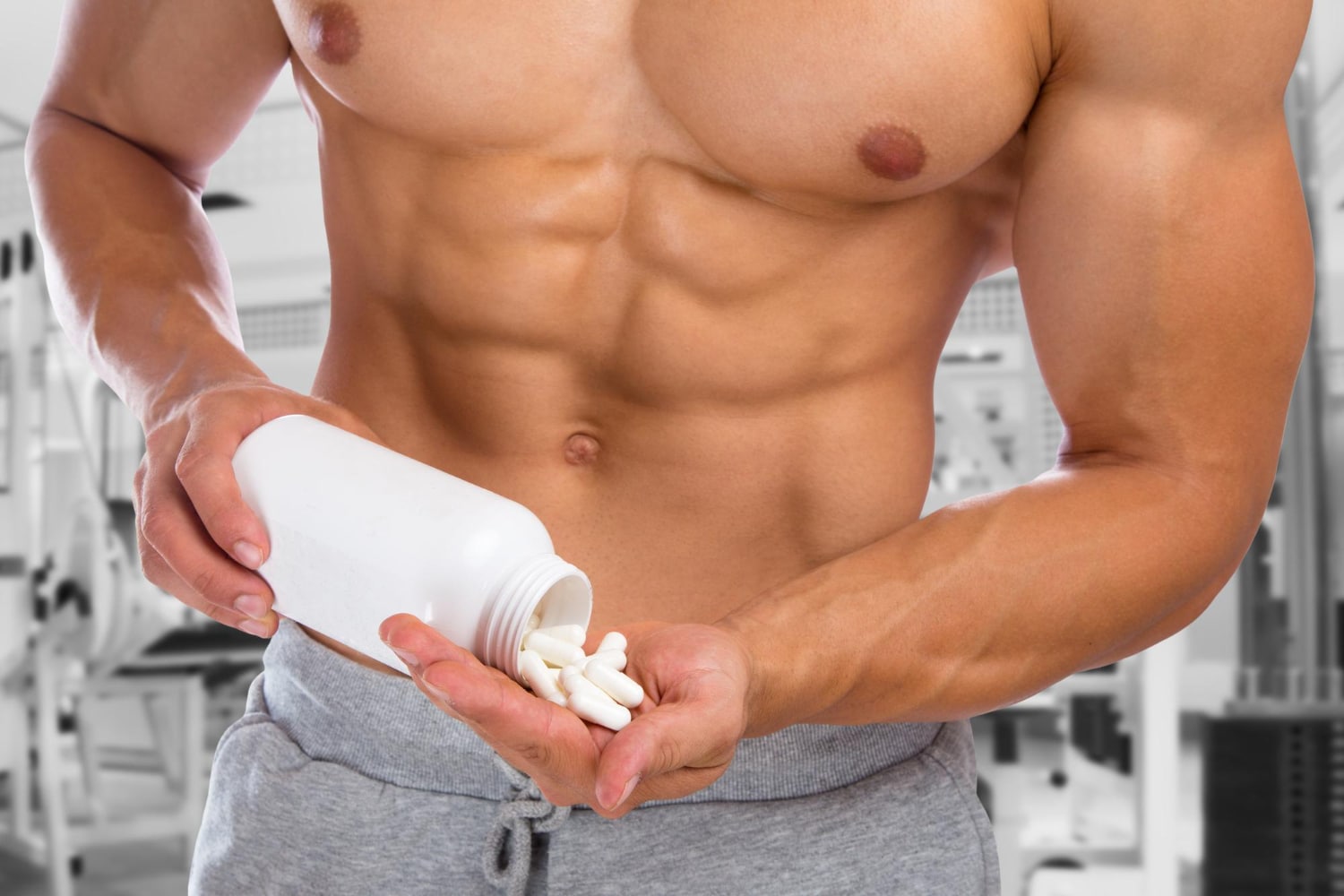
Post Cycle Therapy (PCT) for TRT, Steroids, and PEDs users
Table of contents
Post Cycle Therapy (PCT) is a crucial step following the use of Testosterone Replacement Therapy (TRT), Anabolic Steroids, or SARMs. It involves a combination of HCG injections and other medications to help restore the body’s natural testosterone production. This therapy is essential to prevent side effects such as chronic hypogonadism and azoospermia, which can result from the suppression of natural testosterone. At H.U.M. Clinic, a leading Hormone/TRT Clinic in Bangkok, Thailand, we specialize in comprehensive PCT programs designed to support long-term health and hormonal balance.
If you are looking for a clinic in Bangkok that specializes in TRT Management, H.U.M. Clinic is the ideal choice of TRT Clinics. We are experts in TRT, with experienced TRT doctors who are fluent in English. We provide a full range of services, including pre-consultation, lab Hormone and Testosterones testing for assessment, and ongoing monitoring even for Bodybuilding TRT. Whether you are a local resident or an expat, we are committed to providing high-standard care at an affordable price, supporting you through every step of your treatment.
What is PCT (Post Cycle Therapy)
In the realm of performance enhancement, Post Cycle Therapy (PCT) emerges as a critical component for individuals venturing into the use of performance-enhancing drugs (PEDs), such as steroids, testosterone, and Selective Androgen Receptor Modulators (SARMs). The journey through performance enhancement is not without its perils, notably the suppression of Luteinizing Hormone (LH) which can lead to testicular shutdown, cessation of natural testosterone and sperm production, loss of libido, and erectile dysfunction.
The inception of PCT is rooted in the principle of medical intervention, aiming to mitigate these side effects and restore the body’s natural hormonal balance. The significance of PCT transcends mere recovery; it is about safeguarding the body’s physiological integrity post-exposure to external hormones. Since the FDA’s approval of medications specifically designed for PCT, the landscape of performance enhancement has been revolutionized, offering a safer pathway for individuals to conclude their PED cycles.
PCT is not a one-size-fits-all protocol. It necessitates a tailored approach, often involving a combination of medications such as Luteinizing Hormone (LH) analogs and Selective Estrogen Receptor Modulators (SERMs), to stimulate natural testosterone production and counterbalance the hormonal imbalance induced by PED use. The effectiveness of PCT lies in its strategic implementation, guided by experienced healthcare professionals who can navigate the complexities of hormonal recovery.
As we delve deeper into the nuances of PCT, it’s imperative to understand its foundational role in the journey of performance enhancement. The methodology, the medications involved, and the profound benefits underscore the importance of PCT in not only preserving health but also in optimizing the outcomes of PED use.
The inception of PCT is rooted in the principle of medical intervention, aiming to mitigate these side effects and restore the body’s natural hormonal balance. The significance of PCT transcends mere recovery; it is about safeguarding the body’s physiological integrity post-exposure to external hormones. Since the FDA’s approval of medications specifically designed for PCT, the landscape of performance enhancement has been revolutionized, offering a safer pathway for individuals to conclude their PED cycles.
PCT is not a one-size-fits-all protocol. It necessitates a tailored approach, often involving a combination of medications such as Luteinizing Hormone (LH) analogs and Selective Estrogen Receptor Modulators (SERMs), to stimulate natural testosterone production and counterbalance the hormonal imbalance induced by PED use. The effectiveness of PCT lies in its strategic implementation, guided by experienced healthcare professionals who can navigate the complexities of hormonal recovery.
As we delve deeper into the nuances of PCT, it’s imperative to understand its foundational role in the journey of performance enhancement. The methodology, the medications involved, and the profound benefits underscore the importance of PCT in not only preserving health but also in optimizing the outcomes of PED use.
Impact of Anabolic Steroids and TRT
The allure of anabolic steroids and testosterone replacement therapy (TRT) in the quest for muscle mass, strength, and enhanced athletic performance is undeniable. The cessation of steroid or testosterone use without proper Post Cycle Therapy (PCT) can extend the recovery period of natural testosterone and sperm production to over a year, with some individuals never fully recovering, especially after prolonged use. The decision to use these performance-enhancing drugs should never be taken lightly. Understanding the profound impact they have on the body underscores the importance of considering safer, more sustainable methods for achieving physical goals.
- Anabolic Steroids: These synthetic variations of testosterone have powerful ability to promote muscle growth and enhance physical performance. However, their use disrupts the body’s natural hormonal balance. The binding of steroids to androgen receptors not only facilitates rapid muscle recovery and growth but also signals the body to halt its own testosterone production. This suppression can lead to a range of complications, from hormonal imbalance to complete shutdown of natural testosterone and sperm production.
- Testosterone Replacement Therapy (TRT): TRT has its impact on the body mimics that of anabolic steroids when not carefully managed. The introduction of external testosterone can lead to the suppression of natural hormone production, affecting fertility and natural hormone regulation.
- The Biological Cost: Beyond the immediate benefits lie significant risks. The cessation of natural testosterone production leads to various side effects such as testicular atrophy, decreased libido, and erectile dysfunction. Moreover, the body’s androgen receptors, when overly stimulated, can halt the production of hormones necessary for maintaining muscle mass, fertility, and overall well-being.

Why PCT is important
Post Cycle Therapy (PCT) stands as a pivotal regimen for individuals concluding a cycle of performance-enhancing drugs (PEDs), including anabolic steroids, testosterone, and Selective Androgen Receptor Modulators (SARMs). The essence of PCT lies in its ability to restore the body’s natural hormonal balance, which is often significantly disrupted following PED use.
- Addressing Hormonal Imbalance: The use of PEDs suppresses the natural production of crucial hormones such as Luteinizing Hormone (LH) and Follicle-Stimulating Hormone (FSH), leading to a decrease in endogenous testosterone levels and impaired spermatogenesis. PCT leverages specific medications to stimulate the production of these hormones, aiding in the recovery of the body’s hormonal functions and mitigating the risks of long-term suppression.
- Preventing Long-Term Side Effects: Absence of a structured PCT can result in extended recovery durations, sometimes exceeding a year, with a risk of some users never fully regaining their hormonal equilibrium. Such prolonged imbalances can manifest in severe health implications, including diminished libido, erectile dysfunction, and compromised fertility.
- Essential Medications in PCT: PCT protocols typically include Selective Estrogen Receptor Modulators (SERMs) like Nolvadex (Tamoxifen) and Clomid (Clomiphene), which inhibit estrogen feedback, thereby increasing gonadotropin production and natural testosterone synthesis. Additionally, LH analogs, such as human chorionic gonadotropin (hCG), directly stimulate the testes to produce testosterone, enhancing testicular function and spermatogenesis.
- Who Benefits from PCT?: Any PEDs users who counteract the effects of hormonal suppression and facilitate the reinstatement of the body’s natural hormonal production. It is especially critical for users experiencing symptoms of hormonal imbalance, like reduced libido or fertility issues, post-PED cessation.
- The Advantages of Undertaking PCT: A properly administered PCT can significantly reduce recovery time, enabling users to preserve muscle mass acquired during their PED cycle, restore natural hormonal levels, and avert the adverse side effects associated with PED withdrawal.
WhIch Medications are Used in PCT
Post Cycle Therapy (PCT) is an essential phase for individuals transitioning off cycles of performance-enhancing drugs (PEDs), employing strategic medication regimens to restore hormonal balance and mitigate side effects. The core of PCT revolves around two types of medications: Selective Estrogen Receptor Modulators (SERMs) and Luteinizing Hormone (LH) analogs, each playing a pivotal role in the recovery process. The combination of these drugs, under the guidance of experienced healthcare professionals, forms a comprehensive PCT protocol that addresses the multifaceted challenges posed by PEDs withdrawal.
- Selective Estrogen Receptor Modulators (SERMs): SERMs, such as Nolvadex (Tamoxifen), Clomid (Clomiphene), and others, are integral to PCT. These compounds function by selectively inhibiting estrogen feedback, which, in turn, stimulates the hypothalamus to release more gonadotropin-releasing hormone (GnRH). This increase in GnRH prompts the pituitary gland to produce more LH and follicle-stimulating hormone (FSH), thereby stimulating the testes to produce testosterone. The action of SERMs is crucial for reversing the effects of estrogen dominance and promoting the return of natural testosterone levels.
- Luteinizing Hormone (LH) Analogs: Another cornerstone of PCT is the use of LH analogs like human chorionic gonadotropin (hCG). These analogs mimic the action of natural LH, directly stimulating the Leydig cells in the testes to produce testosterone. This is especially beneficial for individuals who have experienced testicular atrophy or a significant drop in intratesticular testosterone due to prolonged PED use. By replacing the diminished LH production, hCG plays a critical role in restoring spermatogenesis and intratesticular testosterone levels.

What are the Benefits of PCT
Post Cycle Therapy (PCT) is not merely a follow-up routine; it’s a crucial phase that embodies numerous benefits for individuals concluding their cycles with performance-enhancing drugs (PEDs) such as steroids, SARMs, or testosterone replacement therapy (TRT).
- Restoration of Natural Hormonal Balance: The primary goal is to restore the body’s natural hormonal balance. PEDs disrupt the endocrine system, suppressing the natural production of hormones like testosterone. PCT protocols facilitate the recovery of the hypothalamic-pituitary-gonadal axis (HPG axis), promoting the resumption of natural hormone production.
- Prevention of Muscle Loss: Preserving muscle gains achieved during the steroid or SARM cycle. The muscle catabolism happens as natural testosterone levels plummet. PCT helps maintain muscle mass by stabilizing hormone levels. Therefore, It prevents the body from entering a state that favors muscle breakdown.
- Mitigation of Side Effects: Effective PCT can significantly reduce or eliminate adverse side effects associated with PED withdrawal, such as gynecomastia, mood swings, and libido loss. PCT addresses the root causes of these side effects by reinstating hormonal balance and reducing estrogen levels
- Enhanced Fertility and Libido: By stimulating the natural production of testosterone and spermatogenesis, PCT can help reverse the suppressive effects of PEDs on reproductive health and libido.
- Long-term Health Benefits: Engaging in PCT after a PED cycle is a proactive step towards safeguarding long-term health. This is to prevent hormonal and reproductive systems not permanently impaired.
- Psychological Well-being: The restoration of hormonal balance through PCT also positively impacts psychological well-being. The normalization of testosterone levels can improve mood, reduce anxiety, and enhance the overall quality of life.

What are Side Effects of PCT
While Post Cycle Therapy (PCT) is a crucial step in mitigating the negative effects of performance-enhancing drug (PED) use and restoring the body’s natural hormonal balance, it’s important to be aware of the potential side effects associated with PCT medications. PCT aims to accelerate recovery, but like any medical treatment, it can come with its own set of challenges.
- Common Side Effects: The medications used in PCT, including Selective Estrogen Receptor Modulators (SERMs) such as Nolvadex (Tamoxifen) and Clomid (Clomiphene), as well as Luteinizing Hormone (LH) analogs like human chorionic gonadotropin (hCG), can have side effects. These may include headaches, hot flashes, fluid retention, muscle and joint pain, and mood swings. Users might also experience decreased libido, erectile dysfunction, blurred vision, insomnia, and even depression in some cases.
- Managing Side Effects: The key to effectively managing these side effects lies in closely monitoring the body’s reactions to the PCT regimen and adjusting dosages under the guidance of an experienced healthcare provider. Utilizing medical-grade, FDA-approved medications, as provided by H.U.M. Clinic, ensures the quality and safety of the treatment, potentially reducing the risk of adverse effects.
- The Role of Medical Supervision: It’s crucial to undergo PCT under the supervision of healthcare professionals who specialize in sexual medicine and have experience with real-life patients. H.U.M. Clinic offers tailored PCT protocols that consider the individual’s specific situation, drug history, and side effect profile, ensuring a safer and more effective recovery process.
- Prevention and Mitigation: Patients are advised to follow the prescribed PCT protocol as informed by their healthcare provider. Adjustments to the treatment plan may be necessary based on the patient’s response to therapy.

How to Get PCT at H.U.M. Clinic
At H.U.M. Clinic, accessing Post Cycle Therapy (PCT) is streamlined to ensure that individuals who have utilized performance-enhancing drugs (PEDs) can safely and effectively restore their body’s hormonal balance. Our clinic stands out for providing expert PCT guidance and FDA-approved, medical-grade medications, ensuring both safety and efficacy in treatment.
- Consultation with Experienced Professionals: Our team, consisting of doctors trained in sexual medicine with over five years of real-life patient experience, offers personalized consultations. We understand the nuances of PED use and the importance of a tailored PCT protocol.
- Comprehensive Support and Follow-Up: Beyond the prescription of PCT medications, After the initial consultation with doctor, we provide ongoing support and follow-up consultations at no extra charge. Patients can request a doctor to reach out within 24 hours after receive the lab results, ensuring continuous care and adjustment of their PCT protocol as needed.
- FDA-Approved Medications: The cornerstone of our PCT services is the use of medical-grade, FDA-approved drugs.
- Seamless Process for New and Existing Clients:
- New clients are required to undergo an initial assessment, including a detailed review of their medical history and any previous PED use.
- For existing clients, we offer an expedited process to commence or adjust their PCT based on the latest health indicators.
This article was written by
Wichakorn Jitphaphun, M.D.



